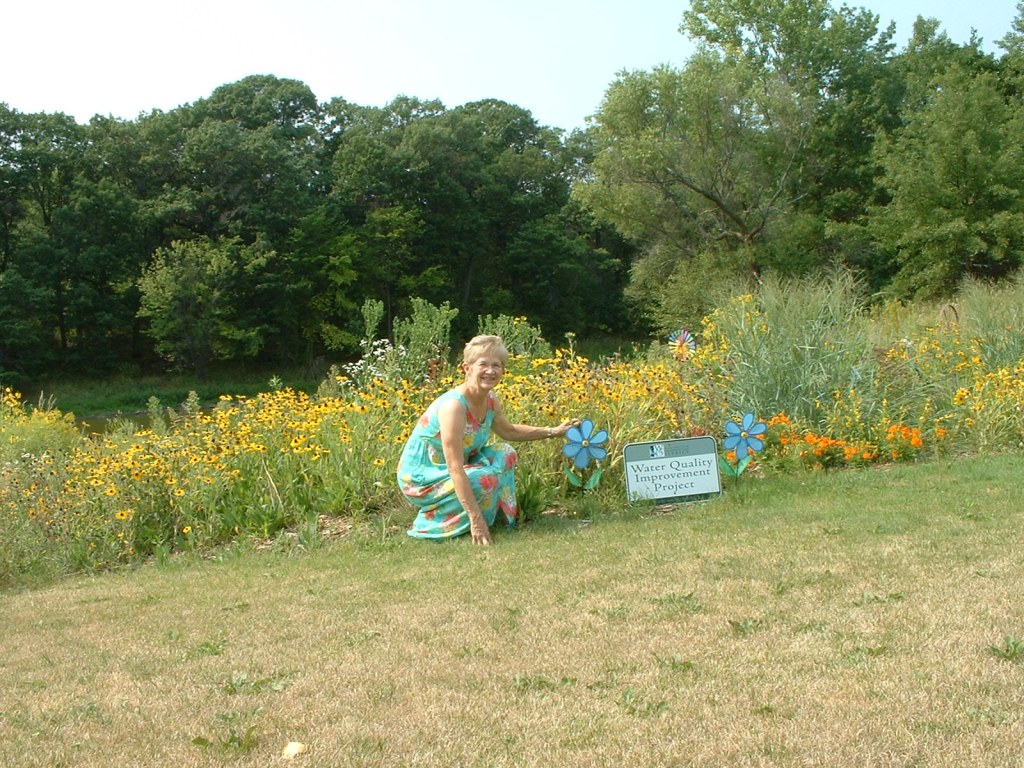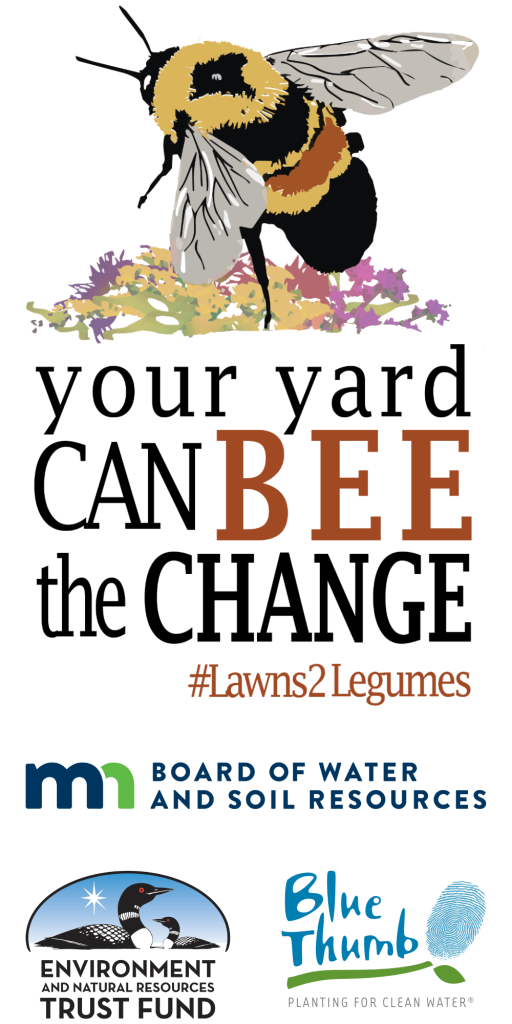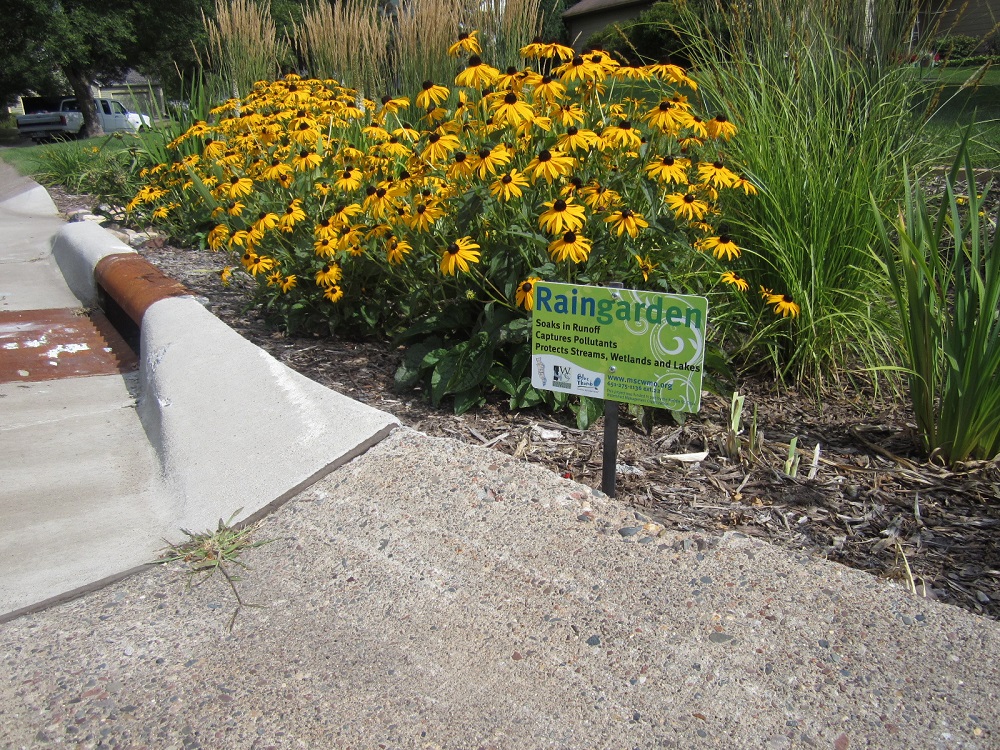On the shores of Crooked Lake in Andover, Cheryl Seeman’s yard is buzzing with bees – or at least it will be once spring truly arrives. A Master Gardener and member of Andover’s Pollinator Awareness Project, Seeman has spent years transforming her yard into a natural oasis with a bee-friendly lawn, native gardens, and a curb-cut raingarden along the street to help reduce stormwater runoff pollution.

In Lake Elmo, Master Gardener Bonnie Juran has taken a similar approach to her yard. In the early 2000s, she was one of the first people in Washington County to plant a raingarden with help from the Washington Conservation District (WCD) and she has spent the years since diligently growing milkweed for monarch butterflies and teaching her neighbors and the wider community about what they can do to help pollinators as well.

Yet another example comes from Evergreen Country Homes in Woodbury, where the townhome association worked with WCD and the Ramsey-Washington Metro Watershed District to replace 3,325 square feet of turf with native plants in 2015. The planting project helped to fix a neighborhood drainage problem and reduce runoff pollution to the nearby Tamarack Nature Preserve.

There is a growing (pun intended?) movement across Minnesota as more and more people begin to think of their yards, not just as a place to relax and recreate, but also as a living landscape that can help to support wildlife and keep water clean. One group of people helping to fuel this movement is the Blue Thumb – Planting for Clean Water partnership, which was formed in 2007.
Blue Thumb was originally developed by Dawn Pape of the Rice Creek Watershed District as a way to engage landowners in planting native gardens, raingardens, and shoreline restoration projects. It soon grew into a public-private partnership that includes native plant nurseries, landscape designers, habitat restoration specialists, non-profit organizations, and local government entities. Today, Blue Thumb is hosted by Metro Blooms, a Minneapolis-based nonprofit, and it also helps to implement Minnesota’s statewide Lawns to Legumes grant program.




The Blue Thumb website (www.BlueThumb.org) is designed to be a one-stop-shop for anyone interested in native landscaping. It includes step-by-step instructions on how to plant pollinator gardens, bee lawns, and natural shorelines, as well as sample garden designs, online learning modules, and garden maintenance advice. In addition, the website also has links to upcoming workshops, community grant programs, and native plant retailers. Of particular interest is the Plant Finder tool, which can be used to identify suitable native plants for any yard’s conditions.
Many people arrive at the Blue Thumb website for their first time when applying for a Lawns to Legumes grant. Created by the Minnesota Legislature in 2019, the program offers small grants up to $400 to help homeowners create habitat for rusty patched bumble bees, monarch butterflies, and other pollinator species. In addition to the grant funding, Lawns to Legumes participants also get access to project design support and are added to “The Hive” to connect with local coaches and other grant recipients in their area.
Currently, Lawns to Legumes is accepting grant applications for awards to be distributed in the fall. Apply by May 15 at www.BlueThumb.org to be entered into the lottery for a chance to receive a grant. In many locations, watershed districts also offer additional grant incentives to help fund raingardens, native plantings, and shoreline restoration projects. These grants can even be paired with Lawns to Legumes grants to help fund larger projects. Registration for Blue Thumb spring workshops opens on Feb. 22.
If you’re ready to begin planning for a summer full of bees and butterflies, there are also a number of upcoming workshops in the east metro area that may be of interest. These include a Shoreline Contractor Training on Monday, March 4 in Stillwater Township (9-11am); the Chisago County Master Gardener Expo on Saturday, March 9 (9am-3pm) in Lindstrom; Planting for Pollinators workshops at the Oakdale Library on March 12 (2-3pm) and April 13 (11am-12pm); and a Raingarden 101 workshop in Gem Lake on March 14 (6-7pm).
Get more details on these and other events at www.mnwcd.org.
